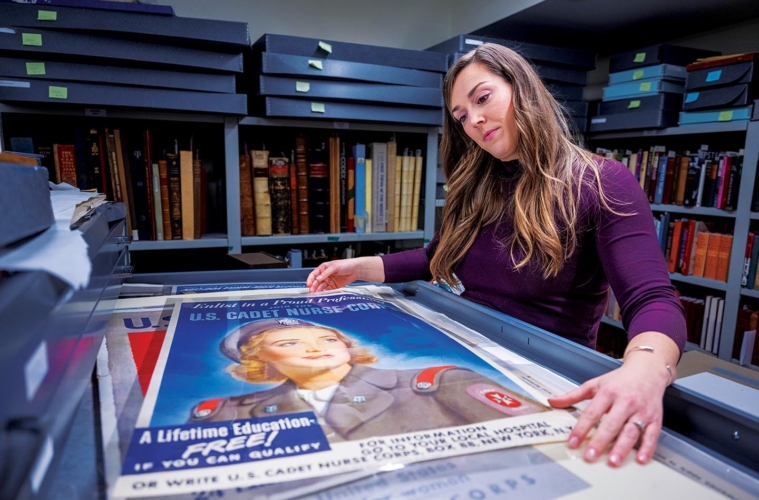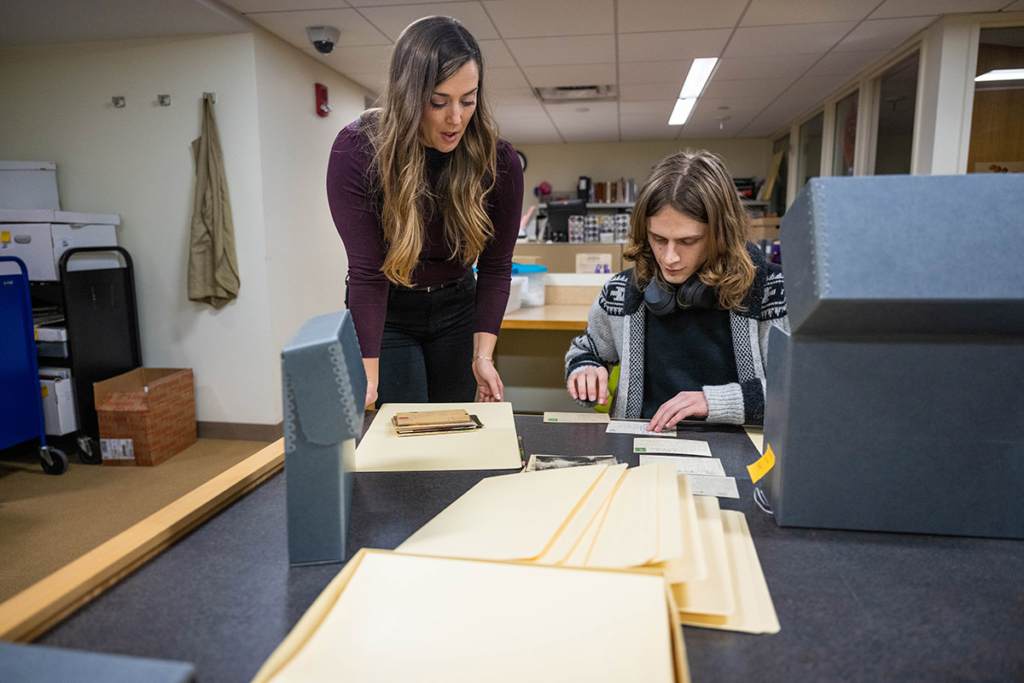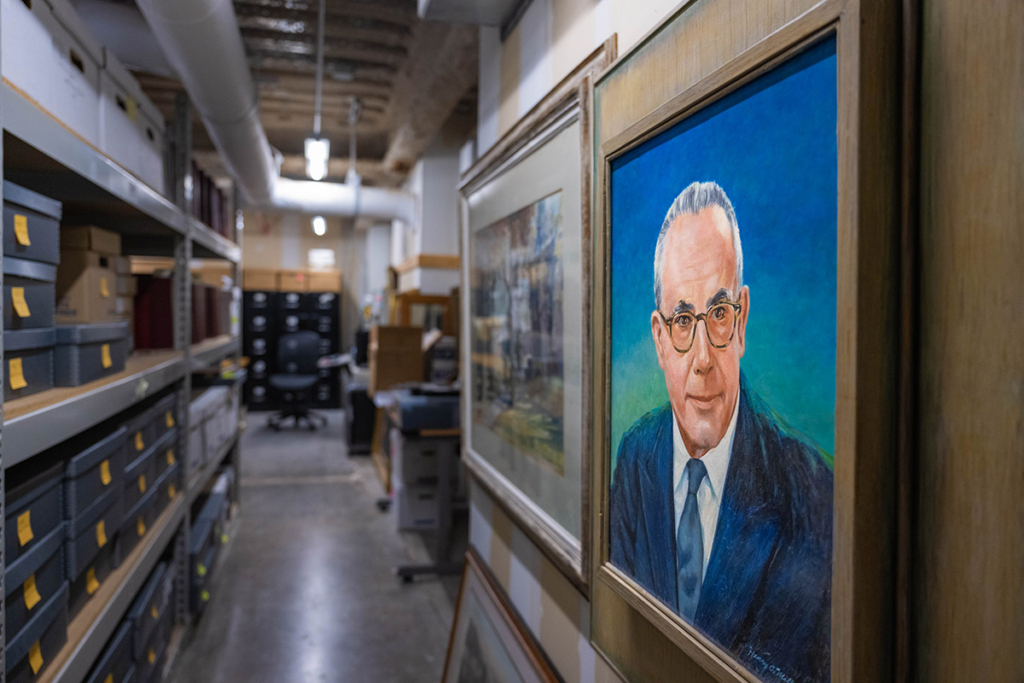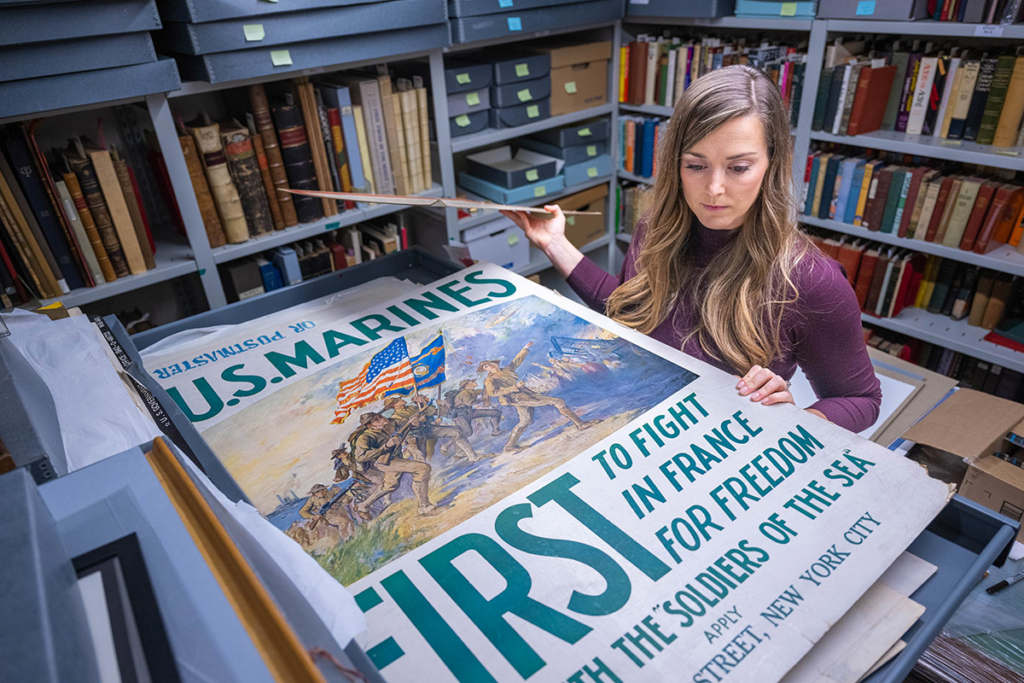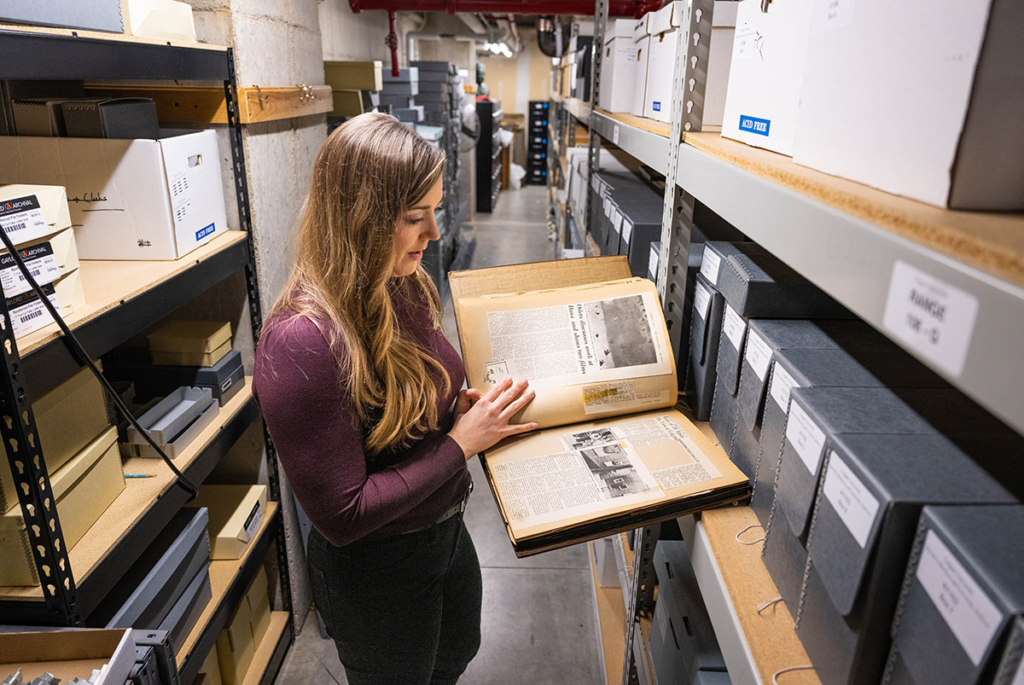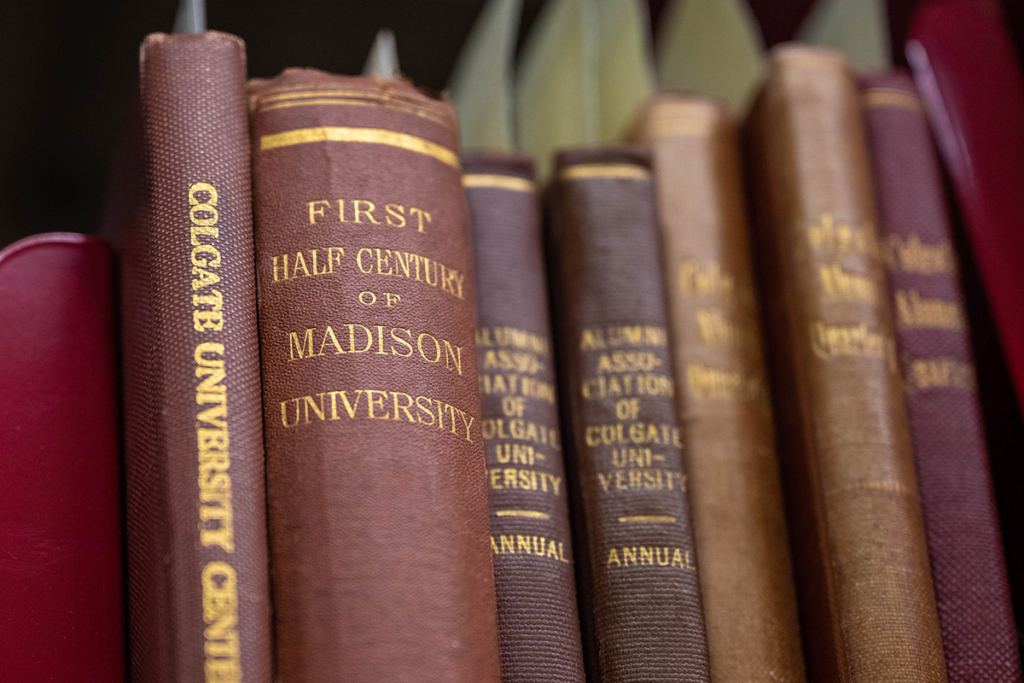The newly appointed University archivist talks about the collections and the archives’ future.
From 4,000-year-old cuneiform clay tablets to documents from Colgate’s Aeonian Society, Special Collections and University Archives’ (SCUA) holdings are wide ranging and diverse. Cara Howe, the newly appointed university archivist and head of special collections and archives, is now their caretaker, bringing with her more than a decade of experience. Howe spent the past eight years at SUNY Upstate Medical Center as the curator of historical collections and assistant director for archives and special collections. Prior, she was the assistant archivist for Pan Am Flight 103/Lockerbie Air Disaster Archives at Syracuse University.
“[Coming to Colgate] was a really wonderful opportunity for me to stay in that academic world but come to a university that has a wonderful reputation with collections that are really diverse and really deep,” Howe reflects. “We have some phenomenal holdings. I’m excited to hit the ground running.”
Colgate SCUA holds records documenting the history of the University as well as donations and acquisitions that hold academic value. Its collections range from rare books and literary manuscripts to photographs and materials relating to Colgate’s clubs and organizations.
Learn more about Howe and read what’s going on in SCUA:
“Our focus in the short term is going to be on connecting [our collections] to [the] curriculum in ways that have not been conceived of before, in ways that maybe the faculty [members] haven’t envisioned,” says Howe. The SCUA staff plans to take a proactive role in letting faculty members know what materials in its holdings might enhance course instruction. For example, Howe says SCUA sees the possibility of “more expansive use of our graphic materials in a studio arts course. Some really wonderful collaborations, where students can use older print materials in innovative digital art projects, have unfolded at other institutions. We’d love to be a partner in creative instruction like that at Colgate.”
One of the biggest services SCUA can offer alumni is its digital presence, which the department is growing. Specifically, SCUA is working on making its web offerings more navigable with more robust content. Adding more materials to its digital collections, for one, will offer alumni a peek into SCUA’s holdings without having to travel to campus. Additionally, Howe plans to organize a number of virtual exhibits.
To view SCUA’s online offerings, visit digitalcollections.colgate.edu.
“We are very dependent on and very appreciative of alumni support. And if that is in the form of materials donations, then please reach out. We’re always excited to hear about what they have, to speak to them about their time at Colgate, and to be a resource for them if they need it.”
Processing new donations and preserving existing collections is a priority for Howe. For example, a collection of nitrate negatives from former University photographer Edward H. Stone is combustible and needs to be refrigerated. “[It’s] an untapped resource that’s full of not just images specific to Colgate, but also to Hamilton as a community, to the surrounding area,” she says. “It’s just got a lot of potential research use and impact locally and further.” Howe and her team are working on cataloging and prepping the collection for that next step in preservation. “We want to make sure that we have a full project plan in place.”
Howe’s current favorite holding: A collection of leather- bound books. “It’s not even so much that the content of the work is particularly rare or hard to find,” she notes. “But the collector loved bindings, she really liked lovely works in leather. That speaks to my soul. Who doesn’t love a beautiful bookshelf full of leather-bound volumes?”

